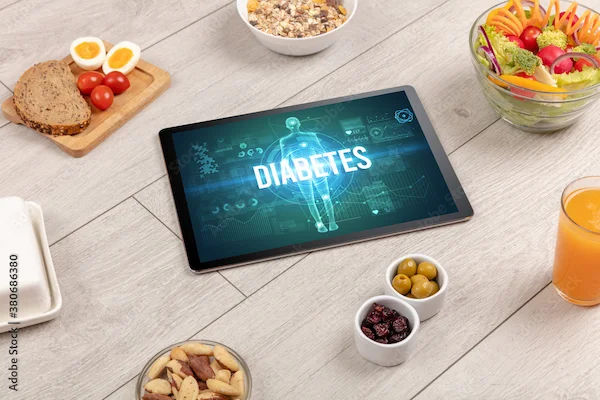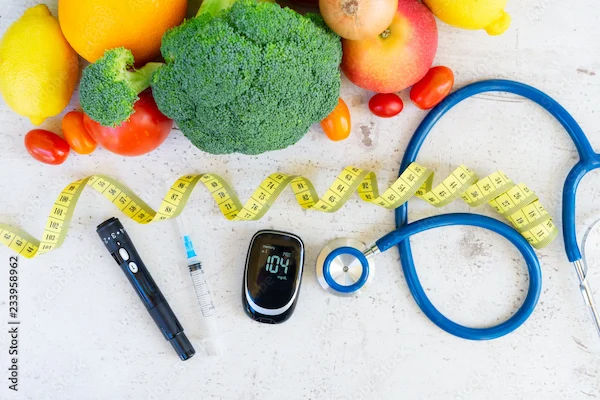Lab Tests for Diabetes Management
Discover essential lab tests for diabetes management, including HbA1c, fasting glucose, kidney function, and more. Learn what each test means and how often to get checked.


Introduction
Living with diabetes can be challenging, but regular lab tests play a crucial role in keeping your condition under control. These tests help monitor blood sugar levels, assess complications, and guide treatment decisions. If you or a loved one has diabetes, understanding these tests can empower you to take better care of your health.
In this article, we’ll discuss the essential lab tests for diabetes management, why they matter, and how you can stay on top of your health.
Why Are Lab Tests Important for Diabetes?
Diabetes affects how your body processes glucose (sugar) in the blood. Without proper management, high blood sugar can lead to serious complications like heart disease, kidney damage, nerve problems, and vision loss.
Lab tests help:
Monitor blood sugar levels: To see if your treatment plan is working.
Detect complications early: So you can take action before they worsen.
Adjust medications: If needed, based on test results.
Track overall health: Including cholesterol, kidney function, and more.
Now, let’s look at the key lab tests you should know about.
Essential Lab Tests for Diabetes Management
1. Fasting Blood Glucose (FBG) Test
What it measures: Your blood sugar level after fasting (not eating) for at least 8 hours.
Why it’s important: Helps diagnose diabetes and monitor how well your treatment is working.
Normal range: 70–99 mg/dL
Prediabetes range: 100–125 mg/dL
Diabetes range: 126 mg/dL or higher on two separate tests
Tip: Get this test done in the morning before breakfast for accurate results.
2. Hemoglobin A1C (HbA1c) Test
What it measures: Your average blood sugar levels over the past 2–3 months.
Why it’s important: Unlike daily glucose tests, HbA1c gives a long-term picture of diabetes control.
Normal range: Below 5.7%
Prediabetes range: 5.7%–6.4%
Diabetes range: 6.5% or higher
Tip: Aim for an HbA1c below 7% (or as advised by your doctor) to reduce complications.
3. Postprandial Blood Glucose (PPBG) Test
What it measures: Blood sugar levels 2 hours after eating a meal.
Why it’s important: Shows how your body handles sugar after meals.
Normal range: Below 140 mg/dL
Prediabetes range: 140–199 mg/dL
Diabetes range: 200 mg/dL or higher
Tip: Keep track of meals and test results to see which foods spike your sugar levels.
4. Oral Glucose Tolerance Test (OGTT)
What it measures: How your body processes sugar over 2 hours after drinking a glucose solution.
Why it’s important: Helps diagnose gestational diabetes (diabetes during pregnancy) and prediabetes.
Normal range: Below 140 mg/dL after 2 hours
Prediabetes range: 140–199 mg/dL
Diabetes range: 200 mg/dL or higher
Tip: This test is often used during pregnancy or when other tests are inconclusive.
5. Lipid Profile Test
What it measures: Cholesterol levels (LDL, HDL, triglycerides).
Why it’s important: Diabetes increases the risk of heart disease, so keeping cholesterol in check is vital.
Ideal ranges:
LDL ("bad" cholesterol): Below 100 mg/dL
HDL ("good" cholesterol): Above 40 mg/dL (men), 50 mg/dL (women)
Triglycerides: Below 150 mg/dL
Tip: A heart-healthy diet and exercise can improve cholesterol levels.
6. Kidney Function Tests (KFT)
What they measure: Kidney health through tests like serum creatinine, BUN, and urine albumin-to-creatinine ratio (UACR).
Why they’re important: Diabetes can damage kidneys over time (diabetic nephropathy).
Normal ranges:
Serum creatinine: 0.7–1.3 mg/dL (men), 0.6–1.1 mg/dL (women)
UACR: Less than 30 mg/g
Tip: Early detection of kidney issues can prevent further damage.
7. Liver Function Tests (LFT)
What they measure: Liver enzymes (ALT, AST, bilirubin).
Why they’re important: Diabetes and some medications can affect liver health.
Normal ranges vary, so discuss results with your doctor.
Tip: Avoid excessive alcohol and fatty foods to protect your liver.
8. Thyroid Function Tests (TFT)
What they measure: Thyroid hormone levels (TSH, T3, T4).
Why they’re important: Diabetes and thyroid disorders often coexist.
Normal ranges vary, so consult your doctor.
Tip: Symptoms like fatigue or weight changes may indicate thyroid issues.
Get Your Symptoms Checked By An Endocrinologist
How Often Should You Get Tested?
The frequency of tests depends on your diabetes type and control:
Type 1 Diabetes:
HbA1c: Every 3–6 months
Kidney and cholesterol tests: At least once a year
Type 2 Diabetes:
HbA1c: Every 3–6 months
Kidney, cholesterol, and liver tests: Annually
Prediabetes:
Repeat tests every 6–12 months to monitor progression
Tips for Better Diabetes Management
Eat a balanced diet: Focus on whole grains, lean proteins, and vegetables. Limit sugary and processed foods.
Exercise regularly: Aim for 30 minutes of walking or other activity daily.
Monitor blood sugar at home: Use a glucometer as advised by your doctor.
Stay hydrated: Water helps regulate blood sugar.
Take medications as prescribed: Never skip doses without consulting your doctor.
Get regular check-ups: Early detection of complications improves outcomes.
When to See a Doctor?
If you experience:
Frequent urination, excessive thirst, or unexplained weight loss (signs of uncontrolled diabetes).
Numbness or tingling in hands/feet (possible nerve damage).
Blurred vision (could indicate diabetic retinopathy).
Swelling in the legs or fatigue (possible kidney issues).
Book Your Diabetes Tests with Apollo 24|7
Regular lab tests are key to managing diabetes effectively. If you need to schedule a test or consult a diabetes specialist, Apollo 24|7 makes it easy:
Visit Apollo 24|7 to book your tests from home.
Conclusion
Diabetes management is a lifelong journey, but with the right lab tests and lifestyle changes, you can live a healthy, active life. Keep track of your results, follow your doctor’s advice, and stay positive, you’ve got this!
Get Your Symptoms Checked By An Endocrinologist
Get Your Symptoms Checked By An Endocrinologist

Dr. Nithin Reddy Modhugu
Endocrinologist
6 Years • MBBS, MD (General Medicine), DNB (Endocrinology)
Hyderabad
Dr. Nithin's Endocrine Clinic, Hyderabad
(100+ Patients)

Dr. Gayatri S
Endocrinologist
4 Years • Suggested Qualifictaion- MBBS, MD (Internal Medicine), DM (ENDOCRINOLOGY)
Nellore
Narayana hospital, Nellore

Dr. Venkata Rakesh Chintala
Endocrinologist
8 Years • MBBS,MD( GEN MEDICINE), DM ( ENDOCRINOLOGY)
Krishna district
Sanjeevani Hospital, Krishna district

Dr. Shiva Madan
Endocrinologist
10 Years • MBBS , MD (General medicine) , DM (Endocrinology)
Bikaner
Sushma diabetes and Endocrine center, Bikaner

Dr. Arunava Ghosh
General Physician/ Internal Medicine Specialist
9 Years • MBBS,MD(GENL.MED.),DM(ENDOCRINOLOGY)
Kolkata
VDC Clinic, Kolkata


